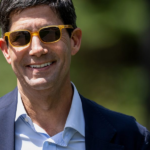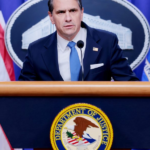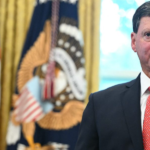President Donald Trump made no secret about “tariff” being “the most beautiful word in the dictionary,” but no one ever saw it coming to the film industry.
The president vowed to impose a 100% tariff, but didn’t share further details on when and how it might be rolled out.
If this were to kick in, it would devastate entire industries in the U.K. and Central Europe, especially as more Hollywood movies and shows, including Wicked and Game of Thrones spinoff House of the Dragon, are increasingly being shot or produced abroad.
Trump said Hollywood was being “devastated” by the shift, and pointed out that foreign incentives are “propaganda” which pose a “national security threat” to the U.S.
However, as most major media companies, whether Walt Disney or Universal Pictures, shoot projects abroad, it’s clear that the movie-making process is already entirely globalized—anathema to Trump’s “MAGA” message.
“It’s a kind of nonsense and a divine ignorance on all their parts,” Cox added.
News of movie tariffs follows after years of disruptions faced by the industry, including COVID-19 delays, Hollywood actors’ and writers’ strikes, and Los Angeles wildfires. The ripple effects of these have been felt across the world.
“I hope, however, that the global film industry won’t be paralysed by caution and uncertainty,” she said.
It’s not uncommon for large-scale movies, such as in the Mission Impossible franchise, to have spectacular overseas backdrops where the plot is set.
There’s also more to it than just filming—movie production is a long process and takes a village to turn into the final product we watch at home or in theatres. Production houses work with talent across countries for various tasks at the post-production stage, which entails editing, sound design, CGI, and more.
It’ll prove tricky to tariff some parts of the process and not others, especially when there’s not always a clear way to track which steps of the overall production process take place in the U.S. or overseas.
“While this announcement is clearly concerning, we need to understand the detail surrounding the proposed tariffs,” Adrian Wootton OBE, the chief executive of BFI, told Fortune in a statement. “We will be meeting with [the] Government and our industry policy group in the coming days to discuss further. The U.K. and U.S. have long enjoyed a strong, shared history of film-making, recently celebrating 100 years of creative collaboration and production.”
“What I was actually most encouraged by was the President talked about the fact that he wants to help the industry and he wants to make the industry stronger,” he said.









